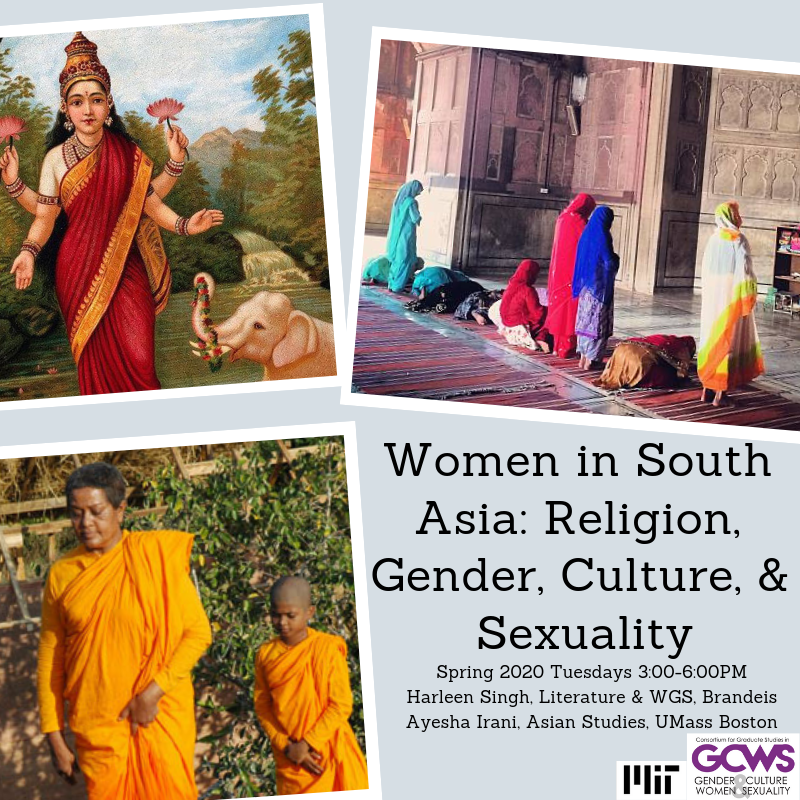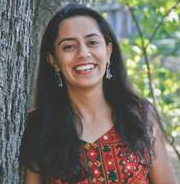Location: MIT
Tuesdays 3:00-6:00PM
Spring 2020. Exact dates TBA
This course examines women in South Asian history through the intersections of women’s lives with religion, colonialism, and postcolonial culture. Using historical, literary, and anthropological lenses the course will consider how various institutions of authority—patriarchy, religion, and the state—have shaped and continue to reshape gender in South Asia, and how women, in turn, resisted, interpreted and negotiated their position in society. Women continue to be a sign of South Asia’s “backwardness,” but serve simultaneously as a symbolic upon which ideas of modernity are debated. Thus, how women are imagined is often at the core of how nationhood is defined and desired in South Asia.
Adopting a chronological (ancient to modern South Asia) and theoretical approach built on examples from literature, film, religious scripture, theological commentaries, and colonial history, this course will explore the following themes: the representation of women in religious texts; the comparative constructions of women and their roles across South Asian cultural traditions; women and the caste system; the goddess traditions, and the question of political and social empowerment; gender segregation; devotion and desire; conceptions of male honor and female chastity, with reference to bride-burning and prostitution; rites of passage, e.g. those relating to puberty, marriage, and widowhood; reformism in the colonial period and its impact on women; and women, nationalism, and fundamentalism.
Faculty
Ayesha Irani is Assistant Professor of Asian Studies at the University of Massachusetts-Boston. Her forthcoming monograph, The Muhammad Avatāra: Salvation History, Translation and the Making of Bengali Islam, examines the role of vernacular translation in the Islamization of Bengal.
Harleen Singh is Associate Professor of South Asian Literature and Women’s, Gender, and Sexuality Studies at Brandeis University. She is the author of The Rani of Jhansi: Gender, History, and Fable in India (2014). She teaches courses on the Novel from South Asia, Indian Film, Immigrant Literature, Colonialism, and Postcolonial Feminist Theory.



